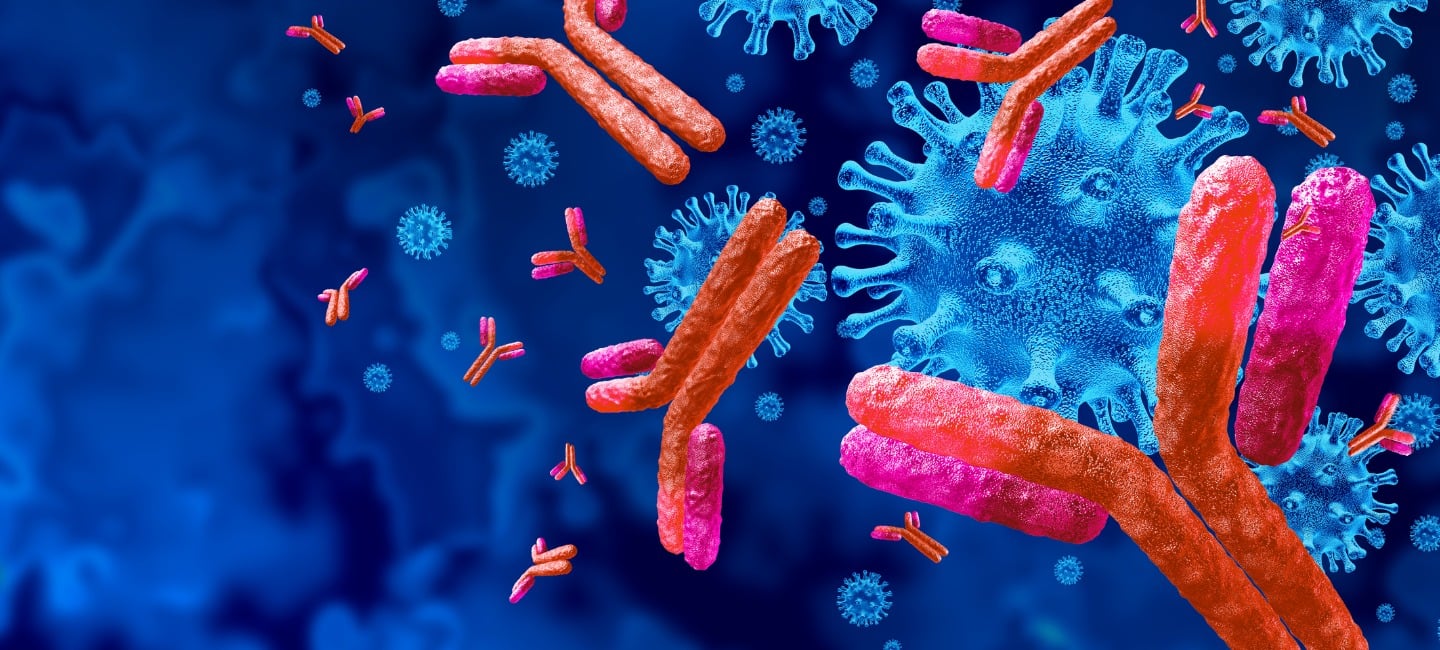What Are Bispecific Antibodies?
The Moffitt Medical Minute is a weekly video series featuring Moffitt Cancer Center President and CEO Dr. Patrick Hwu. He takes complex or confusing medical and scientific topics and breaks them down in just 60 seconds.
How have t-cell-engaging bispecific antibodies had a promising role in future cancer therapeutics?
Check out this episode of the Moffitt Medical Minute for the answer.
What is the difference between Monoclonal antibodies and bispecific antibodies?
Monoclonal antibodies are drugs designed to mimic the natural abilities the immune system uses to ward off illness like infection or cancer. They are used to treat multiple types of cancer. Each one works in a unique way by targeting a specific antigen. Some antibodies target the cancer cell directly. Others help improve the body's natural response to cancer.
Monoclonal antibodies can be engineered to be even more effective by creating bispecific antibodies. One form of these specialized antibodies attaches itself to both a cancer cell and a T-cell, acting as the mediator that activates the T- cells to kill cancer cells. Another form attacks two different antigens on the same cancer cell.



